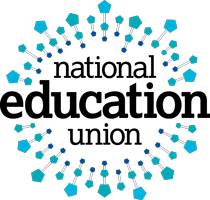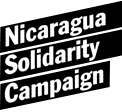Condemnation of US threats against Nicaragua
NSCAG News |
on: Monday, 10 April 2017

In a move ominously reminiscent of US acts of aggression against Nicaragua in the 1980s, legislation has been re-introduced to the US House of Representatives that would, if enacted, profoundly destabilise Nicaragua.
In September last year, the US House of Representatives passed the Nicaraguan Investment Conditionality Act (NICA) of 2016. This called for the US ‘to oppose loans for the Government of Nicaragua by international lending institutions unless the Government of Nicaragua is taking effective steps to hold free, fair and transparent elections, and for other purposes.’
However, because of the US elections, there was insufficient time for this legislation to be approved by the Senate and signed off by the President.
In the meantime, the General Secretary of the Organisation of American States (OAS), Luis Almagro has established what he describes as ‘a constructive relationship’ with the Nicaragua government to address concerns of ‘ an institutional nature including elections’.
This culminated in the signing of a Memorandum of Understanding between the OAS and the government of Nicaragua on 28 February,2017 that establishes the terms of reference for an OAS mission that will accompany Nicaragua over the next three years.
Flying in the face of this initiative by the OAS (of which the US is a member state), on 5 April, 25 members of Congress led by Ileana Ros-Lehtinen and Albio Sires reintroduced a toughened form of their 2016 bill to Congress.
Given the level of influence the US has within international lending institutions, if this became law, Nicaragua could be denied access to the international credit. Currently running at US$250 million annually, these loans are being invested in social programmes, electrification, roads and other infrastructure initiatives.
Since returning to power in 2007, the government has succeeded in bringing peace and stability to a historically war torn country. This has included introducing successful measures to combat high levels of poverty. Cutting international loans would roll back these achievements, profoundly destabilising the country and disproportionately affecting the poorest sectors of the population.
As Nicaraguan economist Mauricio Peralta points out: ‘Impoverishing a country will not contribute to democracy’.
The Nica Act has been unanimously condemned by the Nicaragua government, the private sector and all political parties. A National Assembly statement points out that the Act would only serve to destabilise the country.’ It has also been criticised as counterproductive by the Nicaraguan private sector represented by the Nicaraguan Chamber of Commerce.
Nicaraguan Vice President Rosario Murillo labelled the Nica Act as“ reactionary and interventionist” move that seeks to “undermine the right of Nicaragua to continue developing the socialist model.”
OAS General Secretary, Luis Almagro, added his opposition to the Act arguing that ‘it would not be a constructive contribution to strengthening democracy in Nicaragua.’





